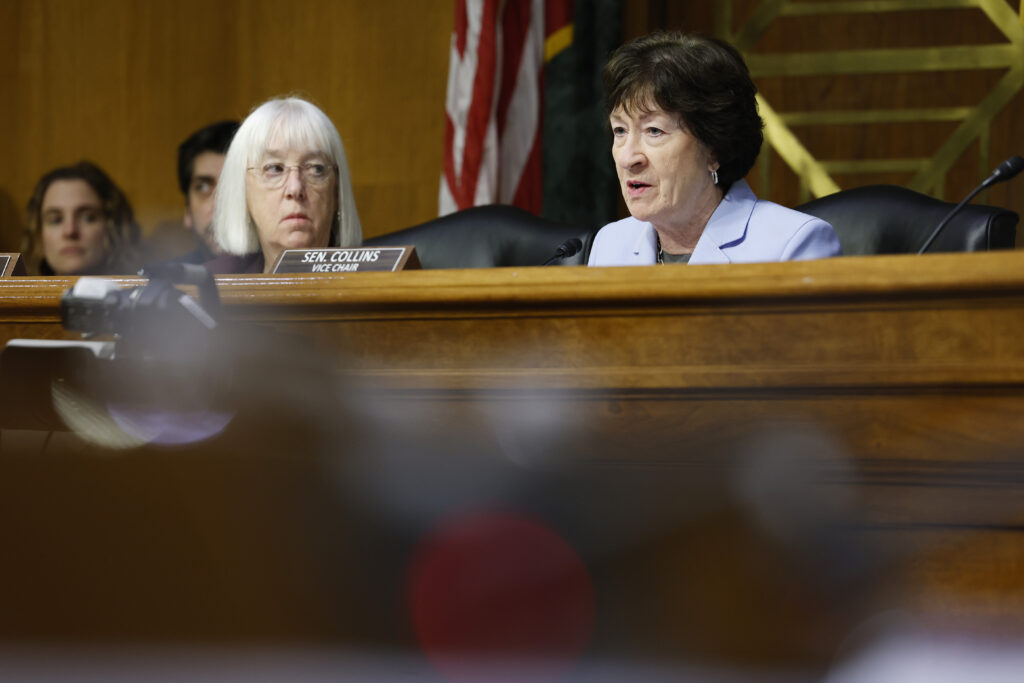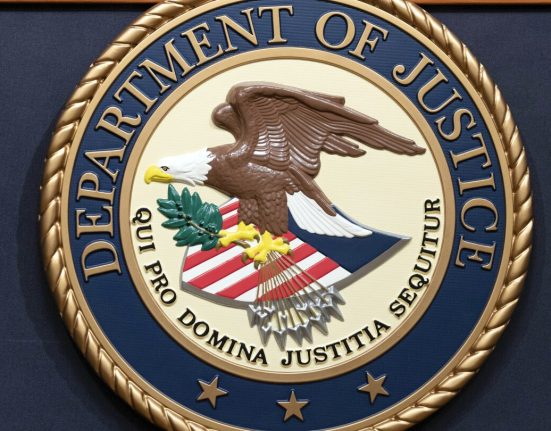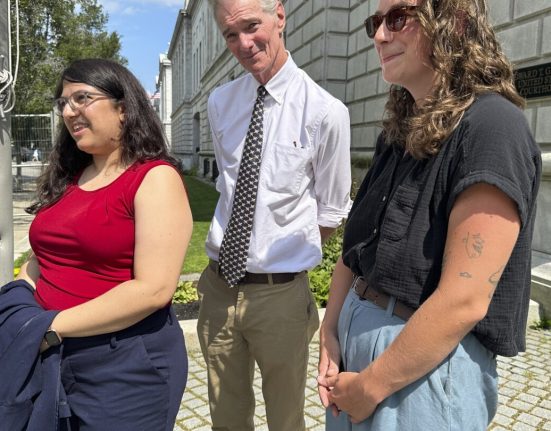Senate Appropriations committee Chairwoman Patty Murray (D-WA) (L) and Ranking Member Susan Collins (R-ME) (R) participate in a hearing in the Dirksen Senate Office Building on November 20, 2024 in Washington, DC. (Photo by Anna Moneymaker/Getty Images)
With the White House slow to distribute congressionally appropriated funds for the National Institutes of Health, some senators from President Donald Trump’s party, including Maine’s Susan Collins, are making appeals to his agenda in an attempt to urge follow through.
Maine is still waiting on roughly $50 million in NIH funding, according to Collins’ office.
Collins, who chairs the Senate Appropriations Committee, and 13 of her Republican colleagues sent a letter to Russell Vought, director of the U.S. Office of Management and Budget, last week raising concern about the slow pace of NIH funding disbursement, which was allocated for research related to cancer, cardiovascular disease, rare pediatric disorders and more.
“These vital efforts are not only necessary to Make America Healthy Again,” the senators wrote, referring to the slogan used by U.S. Department of Health and Human Services Secretary Robert F. Kennedy Jr., “but also have a direct impact on American families, biomedical innovation, our economy, and competing with Communist China.”
The senators went on to write that they share Vought’s “commitment to ensuring NIH funds are used responsibly and not diverted to ideological or unaccountable programs,” a nod to Trump’s vow to eliminate federal support for what the administration deems diversity, equity and inclusion programs and government waste.
“Withholding or suspending these funds would jeopardize that trust and hinder progress on critical health challenges facing our nation,” the senators wrote. “Ultimately, this is about finding cures and seeing them through to fruition.”
The Trump administration has suspended and cut many NIH and other federal grants this year in ambition of those goals. Some have been reinstated piece by piece following congressional pushback, including the recent unfreezing of billions in Education Department funding following bipartisan criticism.
As of the latest available data from June 21, Maine has received about $65 million from NIH awards so far this fiscal year, which ends September 30, with most — almost $49 million — going to Jackson Laboratory. In fiscal year 2024, Maine received nearly $125 million from NIH funds, again with most — nearly $82 million — allocated to the Bar Harbor biomedical research organization.
Of that, almost $68 million of the NIH funds in 2024 were specifically research project grants, whereas so far based on available 2025 data the state has received just shy of $40 million in grants.
Jackson Laboratory declined to comment on the delayed distribution and also declined this past spring to comment on Collins’ performance as a top appropriator during Trump’s second term, in light of criticism that her power is being undermined by the president’s withholding of congressionally appropriated funds.
The pushback from Republicans regarding the slow distribution of NIH funds could preview what is now looking to be another rebuke from the president’s own party to his attempt to gut future science research funding.
In May, the White House proposed the agency receive $27.9 billion in the next fiscal year, about $18 billion lower than fiscal 2025 levels. This would amount to a cut that is so large that the nonpartisan Congressional Budget Office hasn’t been able to predict the impact using its current models.
However, it doesn’t appear that the House or Senate bills will propose such a drastic cut based on spending blueprints released by appropriations committees.
As members of Congress are debating the federal medical research budget, new national polling on the topic is being shared by the Republican-aligned Public Opinion Strategies, who conducted a national survey on behalf of a campaign, United for Cures, launched by the advocacy group UsAgainstAlzheimer to oppose the Trump administration’s funding cuts to health agencies and medical research.
The opt-in online national survey of 1,000 registered voters conducted in late June, with a credibility interval of +3.53%, found that nearly two-thirds of voters oppose Trump’s proposed cut, with 62% of voters saying they would be less likely to vote for a member of Congress who voted for the cuts.
“As we approach the midterm elections, this is something that does have the potential to be a political liability,” Jim Hobart, partner with Public Opinion Strategies, told Maine Morning Star.







